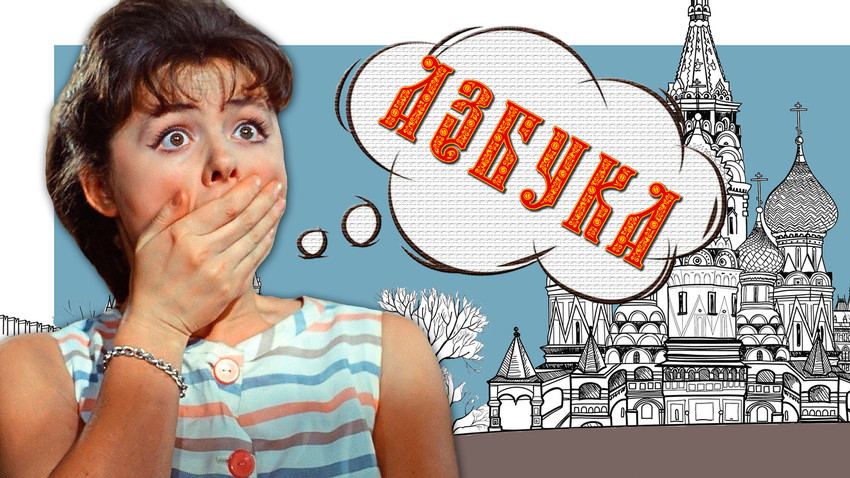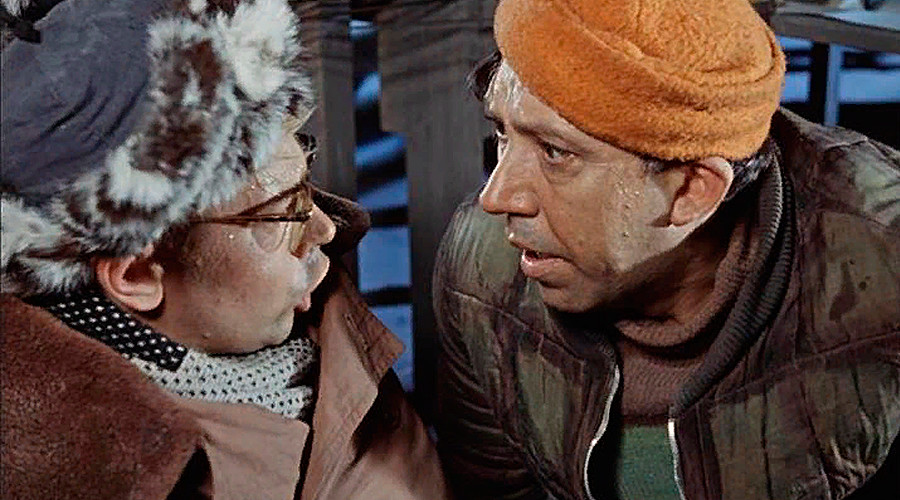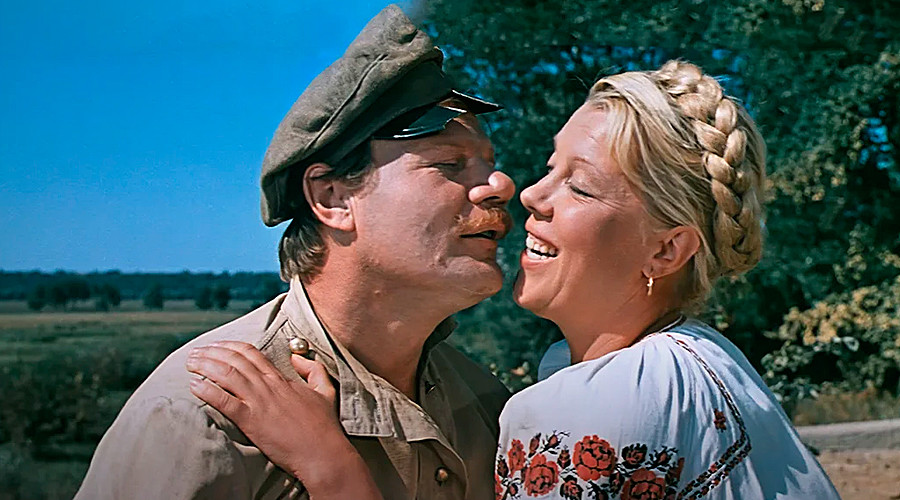Why does Russian sound so scary?

To a non-Russian speaker, the language may often sound like people are bickering. It may seem that tempers are running high and the situation may reach a boiling point, before a fight breaks out. Try to imagine what the protagonists from the Russian movie ‘What Men Talk About’ are saying without the use of subtitles. Sounds menacing, right?
In reality, all that’s happening here is four friends discussing the mystery that is female behavior - things like “why she won’t pick up” or “why she’s constantly stealing from my plate at the restaurant”.
The often menacing - even scary - tone, isn’t a telltale sign of anything, really. Here’s an excerpt from another Russian movie: a black tinted SUV, burly men in suits, smoking in an apparent atmosphere of unease. What do you think is taking place here?
Unbelievably, they’re simply discussing a physics problem that one of their sons got at school.
Why does Russian have such a crude sound to it?
Speakers of Western-European languages may often pick up on an abundance of hissing and whistling sibilants, characteristic of many Slavic languages - the primary theory offered by linguists being that the Slavs have always mimicked the sounds of nature around them.

Nevertheless, non-Russian speakers don’t see as much of this roughness in Polish, Czech or Serbian, despite their phonetics containing a plethora of abrasive sonic combinations (Polish is even mocked as “the great hissing language”, in contrast to Russian as “the mighty and great”, as 19th century author Ivan Turgenev saw it.

The famous Soviet movie "Operation Y and Shurik's Other Adventures." How would you pronounce this Y sound?
Leonid Gaidai / Mosfilm, 1965“When languages are not congenial, and all meaning is obscured, the tendency is to focus on form,” says linguist Tamara Grigorieva of the Russian Academy of National Economy and Public Administration. “It would seem that Russian is still the language of the Soviet rule, so powerful that fear creeps up even today.” As much was said in a song by Russian classical rock band Alisa: “To the aliens Russian sounds like ringing chain armor.”
What about when we talk about love?
Michael Kazinik, a culturologist, believes that the impression left by Russian differs according to the announced topic. “When you’re discussing refuelling a car, the tendency is to pick up on sounds like прр (“prrr”) or тррр (“trrr”); with love, the focus can be more on ль (“l’”), ли (“lee”) , ля-ля (“la-la/lya-lya”) and so on. He lists some examples on a radio station based in Chicago.
“Our language possesses the kind of levels not seen, perhaps, in any other language in the world. This facet can very easily be appreciated through poetry,” Kazinik says.
When looking at it this way, Russian does indeed start to become different - more melodic, romantic, or musical. And it doesn’t matter at all what phonetic combinations you encounter - it’s all about the emotion you put into the words. For example, here is poet Alexander Blok, where almost every word contains some sibilant щ (“shch”), ч (“ch”) or ж (“zh”). But does the poem sound angry?
Language is emotions
Writer Mikhail Zadornov once made the astute observation that Russian is about conveying emotion, while European languages are about conveying actions. Russians - while they appear cold - are actually very emotional. They carry that emotion in the way they speak: the same word said two different ways can produce an entirely different emotion. And it’s not all about how the native speaker conveys an emotion, but about how it is interpreted by the recipient.
“As a linguist, I believe that speakers of different languages will, likewise, exhibit differences in their interpretation of Russian,” Grigorieva says. That impression can change for the better if the person begins to learn the language.

A frame from the Soviet movie "The wedding in the village of Malinovka". Russian language can be very romantic!
Andrei Tutyshkin/LenfilmNicolas Font from Argentina says that “For me, Russian sounds very smooth, with many interesting sounds,” although he sometimes finds it difficult to understand particular expressions. American John Varoli, meanwhile, believes that Russian “has a tough sound, but it’s also melodic”. Andras Karpati from Hungary also thinks that Russian is “a challenge to learn”, but that the more he practices it, the more it reveals “a balanced and beautiful sound”.
If using any of Russia Beyond's content, partly or in full, always provide an active hyperlink to the original material.
Subscribe
to our newsletter!
Get the week's best stories straight to your inbox